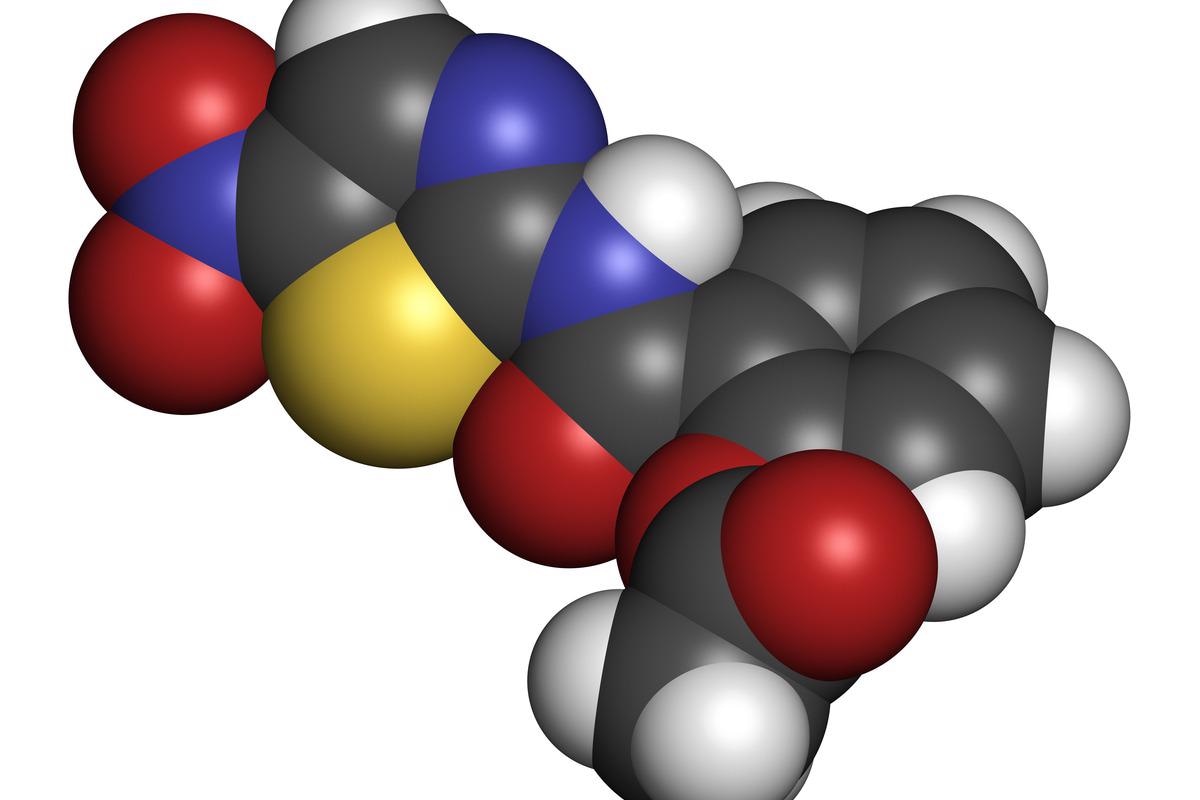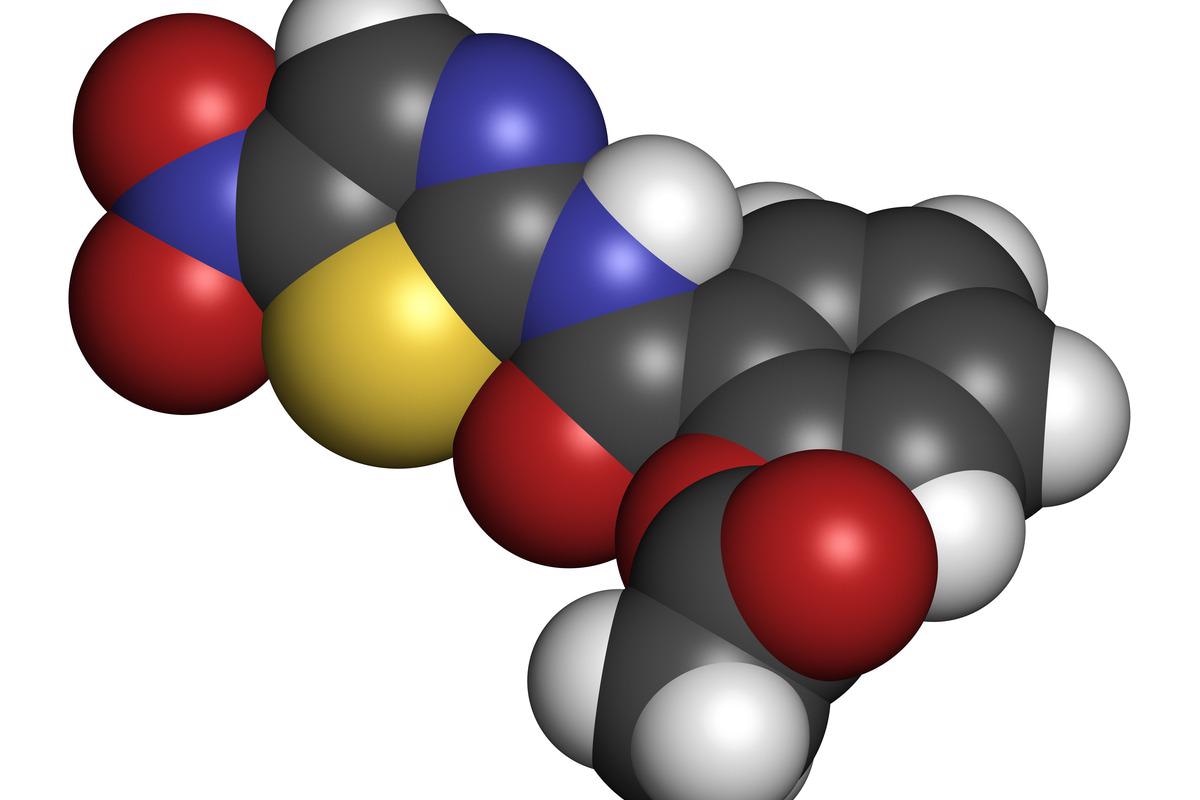In a recent study published in the latest issue of eClinical Medicine researchers tested the safety and efficacy of a 600 mg oral dose of nitazoxanide (NTZ) in mild or moderately ill coronavirus disease 2019 (COVID-19) patients.

Amid the ongoing COVID-19 pandemic, a resurgence of reinfections and breakthrough cases continues due to emerging severe acute respiratory syndrome coronavirus 2 (SARS-CoV-2) variants. Therefore, the need for safe, easy-to-administer antiviral therapeutics that could be taken orally, distributed through pharmacies, and reduce symptoms early on in patients with mild or moderate COVID-19, is urgent.
About the study
In the present study, researchers enrolled 1,092 outpatients over 12 years who presented within 72 hours of the onset of symptoms of mild or moderate COVID-19 for a randomized, double-blinded, placebo-controlled clinical trial. The trials were held at 36 outpatient medical clinics in the U.S. and Puerto Rico from August 2020-February 2021.
An interactive web response system randomized all eligible study participants 1:1 to receive treatment with NTZ or placebo tablets. The randomization was stratified based on COVID-19 severity (mild or moderate at baseline), time elapsed from the onset of symptoms (less than or more than 36 hours), and whether participants had risk factors for severe illness based on the U.S Centers for Disease Control (CDC) criteria. In addition, the authors mandated that all the participants take a vitamin B complex supplement two times a day.
The researchers collected nasopharyngeal swabs, blood and urine samples of the study population, appropriately randomized. On day 4 and day 10, they again collected nasopharyngeal swabs, and those testing SARS-CoV-2-positive were subjected to quantitative/qualitative analysis of SARS-CoV-2 ribonucleic acid (RNA) using reverse transcriptase-polymerase chain reaction (RT-PCR). On day 22, they collected follow-up blood and urine samples to test for quantitative anti-SARS-CoV-2 antibodies.
At this time, the SARS-CoV-2-positive test subjects were treated with two 300 mg extended-release tablets (600 mg per dose) of NTZ orally with food, two times a day for five days.
In the absence of any patient-reported outcomes, they used the InFLUenza Patient-Reported Outcomes (FLU-PRO) symptoms questionnaire to collect symptom data. To this end, they ensured each participant had an app downloaded in their smartphone or a provisioned electronic device to ensure time-stamped, timely recording of data, thus reducing risks of recall bias.
Only those participants who received at least one dose of the study drug were considered for the safety analyses by the researchers. As the primary outcome, they measured the time taken for sustained clinical recovery (TSR) after receiving the first dose of the test drug. To compare the TSR of the two treatment groups, they used a stratified Gehan-Wilcoxon test. The secondary key outcome was enumerating participants experiencing severe COVID-19 symptoms over 28 days in both treatment groups. The comparisons were drawn between the outcomes of two groups using a Cochran-Mantel-Haenszel (CMH) test. Throughout the study period, they collected data related to adverse health events for monitoring.
Study findings
The primary TSR analysis did not detect any significant difference between the NTZ and placebo treatment groups. Mildly ill COVID-19 patients, at baseline, showed an approximately three-day reduction of median TSR after treatment with NTZ, compared to 13.4 days for the placebo group.
Among RT-PCR confirmed SARS-CoV-2-positive participants, 184 and 195 were NTZ- and placebo-treated, respectively. In total, eight participants met the study criteria for progression to severe COVID-19. With a relative risk reduction of 85% after NTZ treatment, one of 184 participants treated with NTZ progressed to severe illness during the 28-day follow-up period compared to placebo-treated 7 of 195 participants.
SARS-CoV-2 RNA (indicating viral load) was present in 70% of nasopharyngeal swabs collected on day 4 and day 10; however, this RNA was not qualitatively and quantitatively substantially different between drug and placebo-treated groups.
Among 133 participants with moderate illness at baseline, participants treated with NTZ experienced a longer TSR and time to return to normal health. Moreover, none among the 68 moderately ill participants in the NTZ treatment group progressed to severe illness while two of 65 in the placebo group did.
Among 63 NTZ-treated patients, there was only one case of an adverse event. It was moderate in severity and appeared unrelated to the study drug. Two participants in the NTZ treatment group died during the study, one due to severe COVID-19, and the other SARS-CoV-2-negative patient died 19 days after completing therapy. Furthermore, two drug-treated participants and three participants receiving placebo discontinued study medication due to adverse events.
Conclusion
Overall, the study findings demonstrated that NTZ treatment was well-tolerated, especially by moderately ill COVID-19 patients, consistent with its proven safety profile. During the 28-day study period, only one participant treated with NTZ experienced any severe outcome, including hospitalization, emergency hospital visit, or death.
Moreover, the TSR data gathered during the study could prove useful for making treatment decisions for COVID-19 patients with mild illness as they show less between-patient variability, and damage to their respiratory tract is minimal. In the future, larger trials with adequate statistical power could establish NTZ as a component of the combination, direct-acting antiviral therapy.
- Jean-François Rossignol, Matthew C. Bardin, Jessica Fulgencio, Dena Mogelnicki, Christian Bréchot, A. (2022). randomized double-blind placebo-controlled clinical trial of nitazoxanide for treatment of mild or moderate COVID-19. eClinicalMedicine. doi: https://doi.org/10.1016/j.eclinm.2022.101310https://www.sciencedirect.com/science/article/pii/S2589537022000402
Posted in: Medical Research News | Medical Condition News | Disease/Infection News
Tags: Antibodies, Blood, Clinical Trial, Coronavirus, Coronavirus Disease COVID-19, covid-19, Efficacy, Flu, Food, Hospital, Influenza, Medicine, Nasopharyngeal, Pandemic, Placebo, Polymerase, Polymerase Chain Reaction, Qualitative Analysis, Respiratory, Reverse Transcriptase, Ribonucleic Acid, RNA, SARS, SARS-CoV-2, Severe Acute Respiratory, Severe Acute Respiratory Syndrome, Syndrome, Therapeutics, Vitamin B

Written by
Neha Mathur
Neha is a digital marketing professional based in Gurugram, India. She has a Master’s degree from the University of Rajasthan with a specialization in Biotechnology in 2008. She has experience in pre-clinical research as part of her research project in The Department of Toxicology at the prestigious Central Drug Research Institute (CDRI), Lucknow, India. She also holds a certification in C++ programming.
Source: Read Full Article
